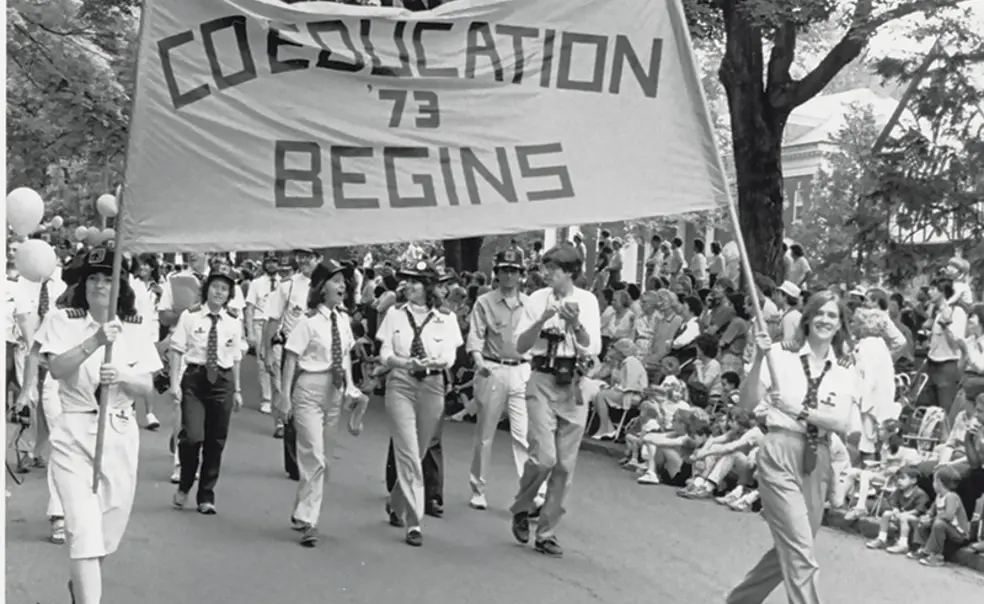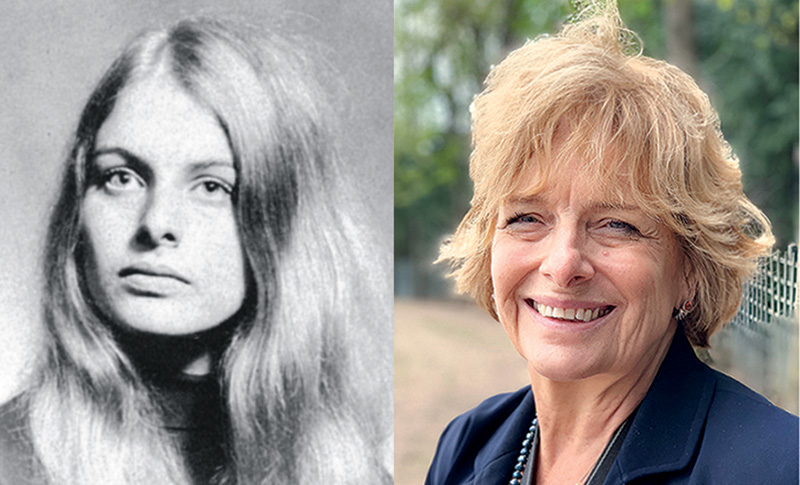Q&A: Lisa Tebbe ’73 Reflects on 50 Years of Coeducation
‘We did something unique, special, and difficult’
Lisa Tebbe ’73’s Princeton experience was both joyful and difficult. But when she thinks back to that historic period, she’s proud to be part of the University’s first four-year class of women and is grateful for the doors Princeton opened for her. Tebbe sat down with PAW to reflect on her time at Princeton and her role as class secretary.
How does it feel to be celebrating your 50th?
It’s hard to imagine. In some ways, I’m still that young girl. Then I look in the mirror and remember all the things I’ve lived through. I am the child of refugees from Ukraine. I feel blessed, grateful, and surprised that it’s been 50 years.
Why did you want to go to Princeton? What do you recall about the experience of applying?
My parents didn’t understand the whole academic environment. So, when it came time to apply to colleges, I was clueless. I grew up in the small rural town of Kinnelon, New Jersey, so my choice was pretty random. I didn’t know Princeton was going coed that year, but the application was free, so I figured, what did I have to lose? A priest who was a family friend had a son go to Princeton and he told me I’d go there one day too when I was in ninth grade. That same year, my high school visited McCarter Theatre to see a play. I vividly remember the snowflakes on Pyne Hall and falling in love with the place.
“I went back to school in my 50s and had a class with a woman professor, and it dawned on me I had never taken a class taught by a woman. I smiled.”
When you think about your time on campus, what stands out?
It’s two extremes. I love the place. It opened so many doors for me. It taught me so many things — not just the academics, but the overall experience. I was introduced to a world that I’d never known existed before. But that first year and a half was really tough. I was unprepared and naive as a 17-year-old. I didn’t fully realize I was going to a men’s school. At times it felt like I was in a men’s locker room, in terms of the language used — it blew my mind. But I think it prepared me for coping and achieving in a man’s world.
What has it been like to be known as the first class of women on campus?
I’m proud because we did something unique, special, and difficult. We’re part of a community that made a small difference, but a difference. Whenever we are marching in the P-rade I just start crying — when the senior class is there watching us go by with the “Coeducation Begins” banner. I’m really delighted that many young people today have no clue what that experience is like. I went back to school in my 50s and had a class with a woman professor, and it dawned on me I had never taken a class taught by a woman. I smiled.
What advice would you give to incoming first-year women?
My advice is not just for women. Don’t be afraid. Go and talk to your professors. Introduce yourself, make sure they know who you are, and let them know if there are things you don’t understand because they are there to support you. I didn’t do that, and I regret it. The other thing I’d say is be your own person. It’s your life and you should live it.
Why did you decide to become a class secretary and what do you do in that role?
Our previous class secretary, Nancy Cassels ’73, passed away, so I stepped up to help. In the role I collect notices from classmates to put together short columns for PAW. I’ve set a few goals: to make it an open and inclusive vehicle to encourage anyone to write in, to preserve the writer’s voice, and to maximize the amount of space we have. Because of this role I know more people now than I did as a student. I also participate in our class leadership meetings and work on our memorials.
Interview conducted and condensed by Carlett Spike













No responses yet